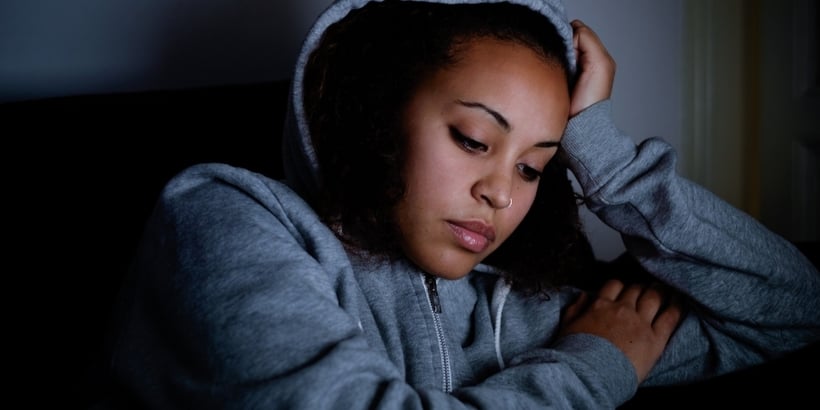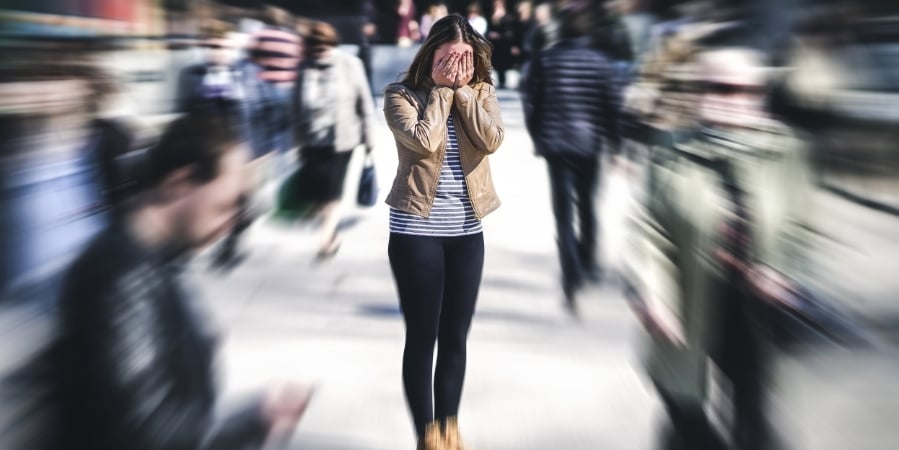Social anxiety disorder (SAD) is a debilitating and chronic illness characterized by a marked and persistent fear of one or more social or performance situation involving exposure to unfamiliar people or possible scrutiny by others.

What Are The Different Types of Social Anxiety Disorder?
There are different types of social anxiety disorder: Generalized, Phobias, Obsessive, Post-Traumatic, Panic, and Social.
Social anxiety disorder typically begins in the early to mid-teens, though it can sometimes start in younger children or adults. The best solution to stop all these disorders is to eat healthy and raise awareness about all of the different conditions associated with social anxiety disorder.
Children and Social Anxiety Disorder
Most people with the disorder start noticing anxiety when they're between the ages of 8 and 15. Children are usually able to hide their social anxiety disorder. Parents and teachers may not notice that anything is wrong, especially since kids are often ashamed to admit how anxious they are feeling, especially, about things that other people don't seem to get upset about the topic.
Usually, kids with social anxiety disorder are not just nervous when they are at parties or giving a speech in class. It's not a phobia of being in social situations. It's being terrified of how people are going to perceive you or others around you.
An example may happen to middle school students; once students attend their first day at school, every student can stare at them. Many students feel and experience some symptoms of social anxiety disorder. In the next part, we will discuss the symptoms and the appearance of social anxiety disorder.
What are Common Symptoms of Social Anxiety Disorder?
Comfort levels in social situations vary, depending on personality traits and life experiences. Some people are naturally reserved, and others are more outgoing. The following sections will address the indications that emerge in social anxiety disorder:
1. Emotional and behavioral symptoms, generally some signs may occur with this kind of situation.
- Intense fear of interacting or talking with strangers;
- Fear that others will notice that you look anxious;
- Avoiding problems where you might be the center of attention;
- Enduring a social situation with intense fear or anxiety; and
- Expecting the worst possible consequences from a negative experience during a social situation.
2. Physical symptoms generally will appear in kids suffering from social anxiety disorder or trouble with the following noticeable signs:
- Blushing;
- Fast heartbeat;
- Tremulous;
- Sweating;
- Upset stomach or nausea;
- Trouble catching your breath;
- Dizziness or lightheadedness; and
- Feeling that your mind has gone blank.
What are Some Tips for Social Anxiety Disorder?
After discovering and explaining the symptoms and conditions that may occur with social anxiety disorder, we will discuss some tips to avoid this condition with normalcy in your life.
- Interacting with unfamiliar people or strangers;
- Attending parties or social gatherings;
- Going to work or school;
- Starting conversations;
- Making eye contact; and
- Entering a room in which people are already seated.
Last, there is consistently higher rates of social anxiety disorder with females versus males. This has been traced to the concept of gender roles and gender differences in child-parent interactions. Although these connections have been established, some caution must be practiced in interpreting the results due to the lack of research, except for parenting.
Incorporating these nutritional tips will help you to stay healthy while when it comes to dealing with Social Anxiety Disorder:
-
Eat fermented foods;
-
Consume smaller and more regular meals;

Eat whole grains and good carbohydrates;
-
Lessen coffee intake and drink more herbal tea;
-
Choose healthier sugars like maple syrup, avoid refined;
-
Limit your alcohol intake;
-
Consume healthy herbs and vitamins such as Vitamin C, Vitamin B Complex, and Vitamin D; and
-
Stay hydrated and drink plenty of liquids (vegetable stock or water).
There are really no excuses not to try these nutritional tips. If you are a man or woman looking for specific health benefits or just want to know about the general healing properties of the products that we recommend on our website. Please remember to comment or post any health questions, or contact us directly!

References
WebMD. (2020). Social Anxiety? Fermented Foods May Help.
Verywell Mind. (2020). Healthy Eating Habits in Social Anxiety Disorder.

















